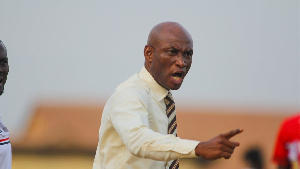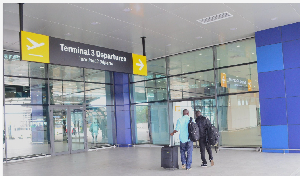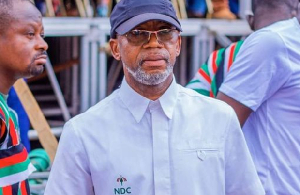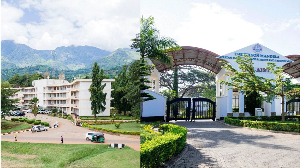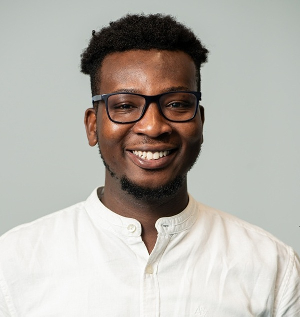In Ghana and all over the world, Muslim leaders such as Imams and Islamic Scholars have begun preparing the minds of Muslims through preaching in mosques to take part in the Ramadan Fast expected to begin in the coming days.
The National Chief Imam of Ghana Sheikh Osman Nuhu Sharubutu Federation of Muslim Councils of Ghana (FMC) will activate a body known as Hilal Committee to provide advice on how to take part in the coming Ramada Fast.
Ramadan Fast
Fasting in the month of Ramadan is one of the five pillars upon which Islam is built. The Prophet (peace and blessings of Allah be upon him) said: “Islam is built upon [the following] five pillars: testifying that there is no God except Allah and that Muhammad is His Messenger, the establishment of the prayer, the giving of zakah, the fast of Ramadan and the pilgrimage to Makkah.” [1]
1. Ramadan 1438 AH:
The first day of Ramadan 1438 is expected to fall on Saturday, 27 May 2017, Insha’Allah. First Qiyaam al-layl (Tarawih prayer) will accordingly be on Friday night 26 May 2017, Insha’Allah. [2] Muslims are encouraged to look for the crescent of the moon of Ramadan from 25 May 2017 (29 Sha’ban 1438).
2. Ramadan – month of obligatory fasting: Allah says:
“The month of Ramadan in which was revealed the Qur’an, a guidance for mankind and clear proofs for the guidance and the criterion (between right and wrong). So whoever of you sights (the crescent on the first night of) the month (of Ramadan i.e. is present at his home), s/he must observe Sawm (fast) that month, and whoever is ill or on a journey, the same number [of days which one did not observe Sawm (fast) must be made up] from other days.
Allah intends for you ease, and He does not want to make things difficult for you. (He wants that you) must complete the same number (of days), and that you must magnify Allah [i.e. to say Takbeer (Allahu Akbar: Allah is the Greatest)] for having guided you so that you may be grateful to Him.” [al-Baqarah 2:185]
3. How to Prepare for Ramadan?
The Sahaaba used to prepare for Ramadan six months in advance. They used to pray to Allah for six months that they would live until Ramadan (with a strong religious commitment and good physical/mental health).
So, if you really wish to make the best of this Ramadan then prepare for it in advance. If you have not yet started, you may consider starting now!
In preparation for Ramadan, the following are recommended:
I. Take stock of ourselves and reflect on our individual/collective strengths and shortcomings. Make sincere repentance from sins between you and your Lord, and between you and other human beings by giving them their rights, and seek forgiveness.
II. Ask Allah to let you live until Ramadan with a strong religious commitment and good physical/mental health.
III. Discharge the duty of any outstanding obligatory fasts from the previous Ramadan (if any).
IV. Seek knowledge (e.g. by reading the Quran, its tafseer/commentary, [3] and books on fasting) so that you will be able to understand and follow/apply correctly the Islamic teachings including those applicable to fasting and the virtues of Ramadan. Prepare your family members for Ramadan.
V. Strive to apply the commands that you read in the Quran.
VI. Hasten to complete any tasks that may distract you from observing, or concentrating to the maximum extent possible on, acts of worship before Ramadan begins.
VII. Fast some days of the month of Sha’ban (corresponding to most of May 2017) in preparation for fasting Ramadan.
It was narrated that A’ishah (may Allah be pleased with her) said: The Messenger of Allah (peace and blessings of Allah be upon him) used to fast until we said: He will not break his fast, and he used not to fast until we said: He will not fast.
And I never saw the Messenger of Allah (peace and blessings of Allah be upon him) complete a month of fasting except Ramadan, and I never saw him fast more in any month than in Sha’ban. [4]
May Allah:
(a) enable us live until Ramadan, perfect for us the blessing of Ramadan, help us fast the month of Ramadan, pray qiyaam (taraaweeh/tahajud with humility and focus, pondering the meanings of what is recited) throughout Ramadan, spend more generously on the poor and the needy (including those in detention);
(b) enable us refrain consistently from doing bad deeds; and
(c) accept our righteous words and good deeds (acts of worship), forgive us our shortcomings, and help us to be sincere in secret and in public.
Opinions of Sunday, 30 April 2017
Columnist: Alhaji Alhasan Abdulai





